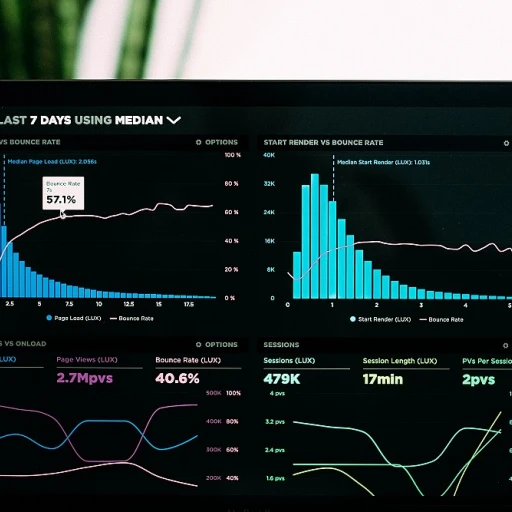
Understanding Eloqua Integration
Exploring Eloqua's Integration Landscape
In today's digital age, understanding the intricacies of Eloqua integration is crucial for businesses aiming to optimize their marketing strategies. Eloqua, a robust marketing automation platform by Oracle, offers a suite of tools designed to streamline marketing efforts. At its core, Eloqua facilitates seamless integration with various systems, allowing marketers to harness the power of data-driven campaigns.
Integration with Eloqua involves connecting different systems and platforms to create a unified marketing ecosystem. This process is essential for leveraging data from multiple sources, such as email campaigns, social media activities, and customer interactions. By utilizing Eloqua's connectors, businesses can integrate with platforms like Google Cloud, enhancing their marketing capabilities.
The Significance of APIs and Connectors
APIs (Application Programming Interfaces) and connectors play a pivotal role in Eloqua integration. They enable the exchange of data between Eloqua and other systems, ensuring that information flows smoothly across platforms. For instance, the Eloqua API allows for the automation of tasks such as data import and export, while the Eloqua connector facilitates integration with third-party applications.
Utilizing APIs and connectors effectively can significantly enhance a company's marketing efforts. By accessing real-time data, businesses can make informed decisions, optimize their campaigns, and improve customer engagement. The ability to integrate with various platforms also allows for the customization of marketing strategies, catering to specific business needs.
Understanding the Role of Authentication
Authentication is a critical component of Eloqua integration, ensuring that data is securely accessed and shared between systems. It involves verifying the identity of users and systems, granting access to authorized entities only. This process is vital for maintaining data integrity and protecting sensitive information.
With the increasing importance of data security, understanding the role of authentication in integration is more important than ever. Businesses must implement robust authentication mechanisms, such as access tokens and client secrets, to safeguard their data. As we delve deeper into the challenges and best practices of Eloqua integration, the significance of authentication will become even more apparent.
For more insights on how integration impacts social media influence, explore the impact of Affinius Capital on social media influence.
The Role of Authentication in Integration
Purpose of Secure Integration
Authentication is crucial when integrating Oracle Eloqua with other platforms. Effective authentication ensures that only authorized systems access your sensitive data. This not only protects the information but also manages how different systems communicate during the integration.
Selecting the Right Authentication Method
Different types of authentication methods exist, each catering to specific integration needs. It is important to consider factors such as security level, ease of use, and compatibility with your cloud environment. Popular methods include OAuth, which generates an access token for API calls, or using a client secret and login eloqua credentials for a more direct approach.
Managing Access and Refresh Tokens
In the realm of Eloqua API calls, managing access tokens is vital. These tokens enable continuous communication between Eloqua and connected platforms, such as the Google Cloud. To maintain seamless access, it is crucial to implement a token refresh strategy. This ensures that when a token expires, a new token is generated without disrupting the integration process.
Handling Multiple Authentication Scenarios
Integrations often involve various scenarios, each requiring specific authentication configurations. Whether using the rest api for straightforward data pulls or the bulk api for large-scale data review, selecting the appropriate grant type is essential. Proper planning and configuration will streamline the interaction between systems, limiting delays or errors during data exchanges.
Insight into the Role of Integrations
Oracle Eloqua integrations play a significant role in managing campaigns efficiently. For example, tracking email open and click rates through Eloqua's connector can provide valuable insights into customer engagement. This connectivity impacts how events are managed within Eloqua, from selecting specific api request parameters to analyzing activity types.
To learn more about securing your eloqua account and advanced integration strategies, explore the roles of various investment firms in social media influence. This offers a deeper understanding of how entities leverage integrations to hold a robust market position.
Challenges in Eloqua Integration Authentication
Tackling Authentication Complexities
Eloqua integration can be challenging, primarily due to authentication roadblocks. When working with Oracle Eloqua, understanding the various authentication types and their respective requirements is crucial. To connect different systems and platforms, such as leveraging an integration service, authentication must be managed efficiently. This not only ensures secure data exchange but also smoothens the workflow between connected systems.
The authentication process often involves handling various components like credentials—client secrets, access tokens, and OAuth 2.0 grant types. To effectively manage user access and maintain consistent data flow, you must navigate several technical specifications such as single sign-on, REST API, and token refresh procedures.
A successful integration often requires attention to details such as the API request handling, where technologies like the bulk API, rest API, and Eloqua API come into play. It is within these requests that authentication hurdles often arise, making it necessary to refine and ensure the correct configuration of parameters like callback URLs, access tokens, and token strings.
Version discrepancies can further complicate authentication. With regular Oracle cloud updates and new version release notes, keeping pace with changes is essential to avoid setbacks in authentication processes.
Another aspect to consider involves access management within the Eloqua account. By setting precise permissions with the use of connectors, such as the Eloqua connector or third-party services like connector Google or Google Cloud, you provide the necessary access to users while restricting unauthorized data access.
Additionally, it is crucial to monitor the authentication progresses for events that could affect data accuracy and timeliness, such as email open/click activities within campaigns. This ensures that every connector functions optimally, contributing to the seamless operation of your integration ecosystem.
Best Practices for Seamless Integration
Implementing Best Practices in Integration
When it comes to achieving seamless Eloqua integration, adhering to best practices is key. Starting with understanding the core features and capabilities of the Eloqua connector, businesses can significantly simplify their integration process. Properly managing authentication is critical to ensure secure and uninterrupted access to your Eloqua account.- Token Management: Using an updated access token is essential for your integration activities. Regular token refresh procedures help maintain access over time, mitigating any potential interruptions.
- API Efficiency: Leveraging the Eloqua API effectively can streamline processes such as email campaigns and data synchronization. Making efficient use of the oracle eloqua rest api can enhance your integration service routines.
- Secure Authentication Protocols: Implementing robust client secret handling and ensuring single sign authentication can circumvent unauthorized access, ensuring the integrity of your data.
- Utilize Bulk API: The eloqua bulk api is instrumental for handling large datasets, making it suitable for extensive campaigns and data analysis without compromising on time efficiency.
- Strategic Use of Oracle Cloud: Integrating with platforms such as Oracle's cloud enables better management of data and workflows across different systems.
- Release Notes Review: Keeping abreast with Eloqua's release notes ensures that your integration benefits from the latest features and security enhancements.
- Engage with Experience Platforms: Selecting optimal experience platforms and connectors, such as the eloqua connector google, facilitates smoother and more effective campaigns and events creation.
Leveraging Eloqua for Social Media Influence
Maximizing Social Media Influence with Eloqua
Leveraging Eloqua's capabilities can significantly boost social media influence, primarily through enhanced data management and targeted marketing campaigns. By effectively utilizing the Eloqua integration, marketing professionals can streamline their email campaigns, improving the open and click rates by targeting the right audience segments. With OAuth authentication, secure access to the vast Oracle Eloqua API can be maintained, ensuring seamless information flow between various systems.
The integration connects with multiple platforms, including the oracle experience platform, enhancing your online presence through synchronized campaigns. Eloqua's connectors, such as the Google cloud connector, play a crucial role by automatically pulling data from different sources and updating it in real time, making sure that your social media strategy aligns with the most current information available.
Staying up-to-date with the latest Eloqua version release notes is essential to leverage new functionalities, notably those designed to enrich user interactions across your digital channels. With the availability of features like token refresh and single sign capabilities, the process of handling multi-channel marketing becomes more efficient and significantly reduces redundant administrative tasks.
Using Eloqua's API requests, including the browser-friendly REST API, marketers can access detailed customer activity data such as email string opens and click events. Insights from these activities enable the creation of highly personalized campaigns, reflecting the shift towards data-driven decision-making, foreshadowing future trends in authentication and integration services.
In conclusion, the effective integration of Oracle Eloqua with your social media plans not only facilitates a more secure environment through intricate authentication mechanisms but also opens up avenues for creating impactful, customer-focused campaigns enhanced by real-time data.













